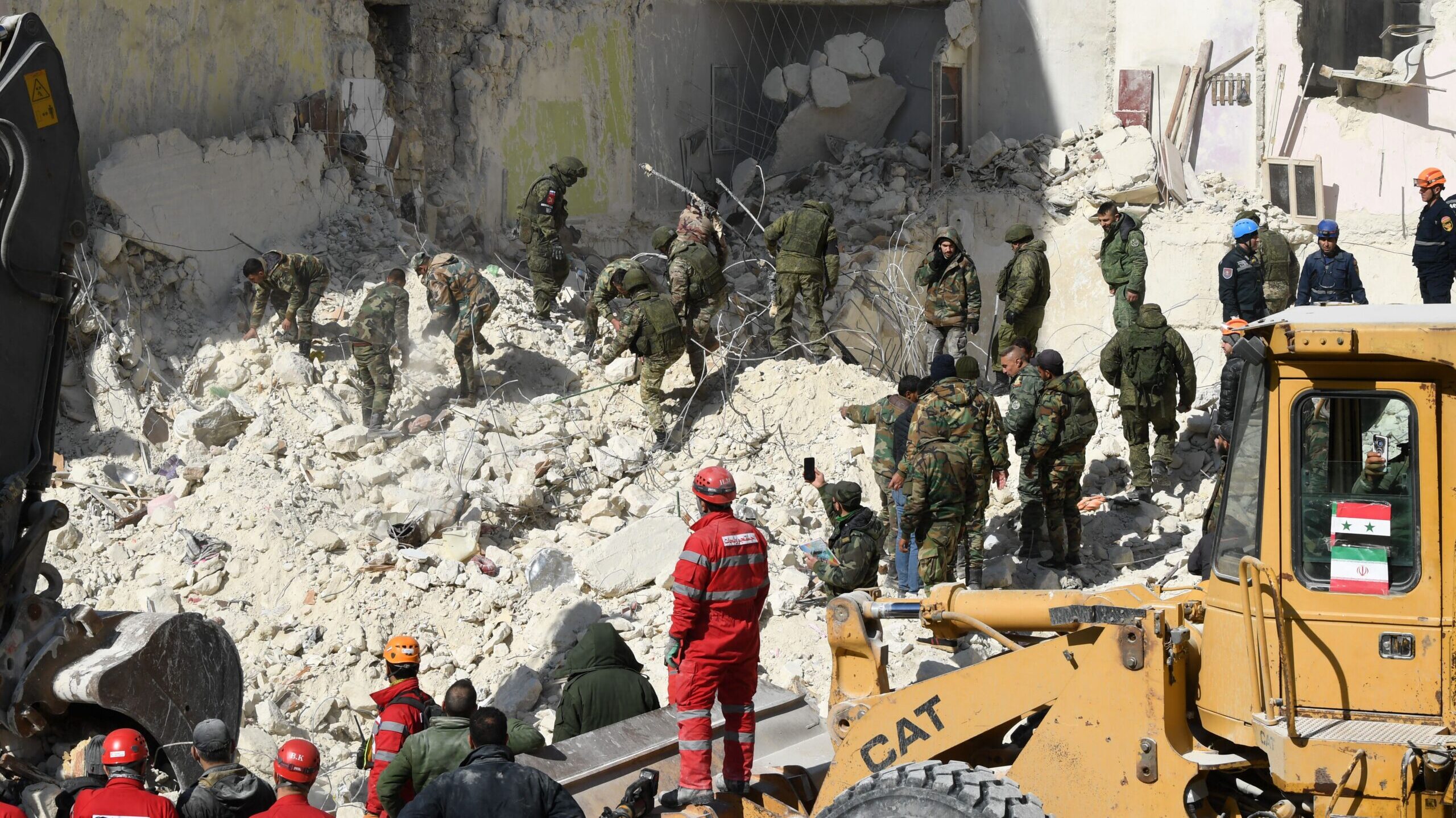Amid Horror of Turkey-Syria Quake, ISIS Seeks an Advantage
Using the earthquake as cover, at least 20 inmates escaped from Syrian jail holding mostly Islamic State members close to Turkish border; experts warn Turkey could be vulnerable as it focuses all its resources on aftermath of disaster
The two massive earthquakes that struck early Monday on the border of Syria and Turkey have claimed thousands of lives and threatened the survival of thousands more facing the bitter winter cold without home or shelter. But they have also created a security threat, with local terror groups seeking to leverage the disaster for their own ends.
In Syria, where the response to the quakes has been hampered by more than a decade of brutal civil war, inmates at a prison in the northwest of the country rioted in the aftermath of the temblors, with a local source telling the media that at least 20 prisoners had escaped.
The prison holds 2,000 inmates, of whom 1,300 were believed to be members of the Islamic State group, the source said. The facility is in the Syrian town of Rajo, some 3 miles (approximately 5 km) from the Turkish border and around 40 miles (65 km) from Aleppo.
“After the earthquake struck, Rajo was affected and inmates started to mutiny and took control of parts of the prison,” AFP quoted an official at Rajo jail as saying. “About 20 prisoners fled… who are believed to be IS militants.”
The official told AFP that the quake caused damage to the prison, cracking walls and doors.
The first quake, which struck in the early hours of Monday morning while people slept, was measured at a magnitude of 7.8. The second, which struck some nine hours later, had a magnitude of 7.5. The two quakes and their hundreds of aftershocks leveled buildings, leaving at least 19,800 people dead and thousands more injured and homeless on both sides of the border.
Turkey, which is struggling to cope with the aftermath of the disaster, is ill-equipped to tackle security threats at present, something that works to the advantage of groups such as ISIS.
In fact, Turkey’s singular focus on responding to the earthquake could even create favorable circumstances for terrorist organizations attempting to penetrate the border from Syria.
“All the Turkish state’s capacities are mobilized to address the earthquake-related issues. This is not a moment to be missed by extremist organizations,” Dr. Hamoon Khelghat-Doost, professor of political science at the University of Lincoln, UK, and Üsküdar University, Istanbul told The Media Line in an interview.
“Any event, including natural disasters, that can divert the attention of a nation to a topic other than securing its borders is very much welcomed by extremist organizations such as ISIS.”
Khelghat-Doost noted that ISIS similarly used the coronavirus pandemic as an opportunity to reorganize and amass power.
He estimated that thousands of Syrians had been killed and thousands more had lost their homes. This, he explained, may lead to a new influx of Syrian refugees crossing the border into Turkey in search of shelter and support. Any large-scale flow of populations in the area, he warned, carried its own security threats.
“It has been a common practice by the members of different terrorist organizations to use humanitarian tragedies to cross the border to Turkey. There is a fear that history will repeat itself in the coming days,” Khelghat-Doost said.
“Thousands of extremists are living along the borders of Turkey and following the developments eagerly to find an avenue to enter Turkey or to conduct attacks along the border,” he said.
The border between Syria and Turkey extends more than 500 miles. The bilateral security agreement that once existed on the border was disrupted by the Arab Spring of the early 2010s, a regionwide phenomenon that also triggered the ongoing Syrian civil war.
Turkey’s border policy has shifted over the years. In response to Syria’s escalating civil war, Turkey established an open border policy at the shared frontier, allowing Syrian refugees to flee into Turkey. Soon after the start of the civil war in 2011, however, the area of Syria that borders Turkey was taken over by ISIS, creating a serious security threat to Turkey.
“The situation got complicated as the vacuum of power in Syria provided a conducive environment for the rise of extremist organizations such as ISIS. The group took control of a vast area along the border with Turkey,” Khelghat-Doost said. Ankara considers both IS and Syrian Kurdish forces immediate national security threats.
Several terrorist operations throughout Turkey are believed to be run by extremists who crossed from Syria into Turkey. To counter those threats, Turkey has conducted several military operations to secure the border, including Operation Euphrates Shield in 2016-2017, Operation Olive Branch in 2018, and Operation Peace Spring in 2019.
Uğur Şener, an international security analyst based in Turkey, told The Media Line that Ankara is continuing efforts to maximize its border security given the context of irregular migration.
Almost the entire Turkish border with Syria has been outfitted with a security barrier, Şener said. Most of the frontier now features an illumination system that includes a thermal sensor to detect movement close to the border.
In response to the Quran burning at a protest in Sweden last month, ISIS leaders ordered the group’s affiliates to carry out an attack against the Swedish and Dutch consulates-general in Istanbul and against Christian and Jewish houses of worship. After the Turkish Intelligence Branch Directorate learned of the plot, it detained 15 ISIS members who were later sent to prison, Şener said.
Sara Miller contributed to this article.


